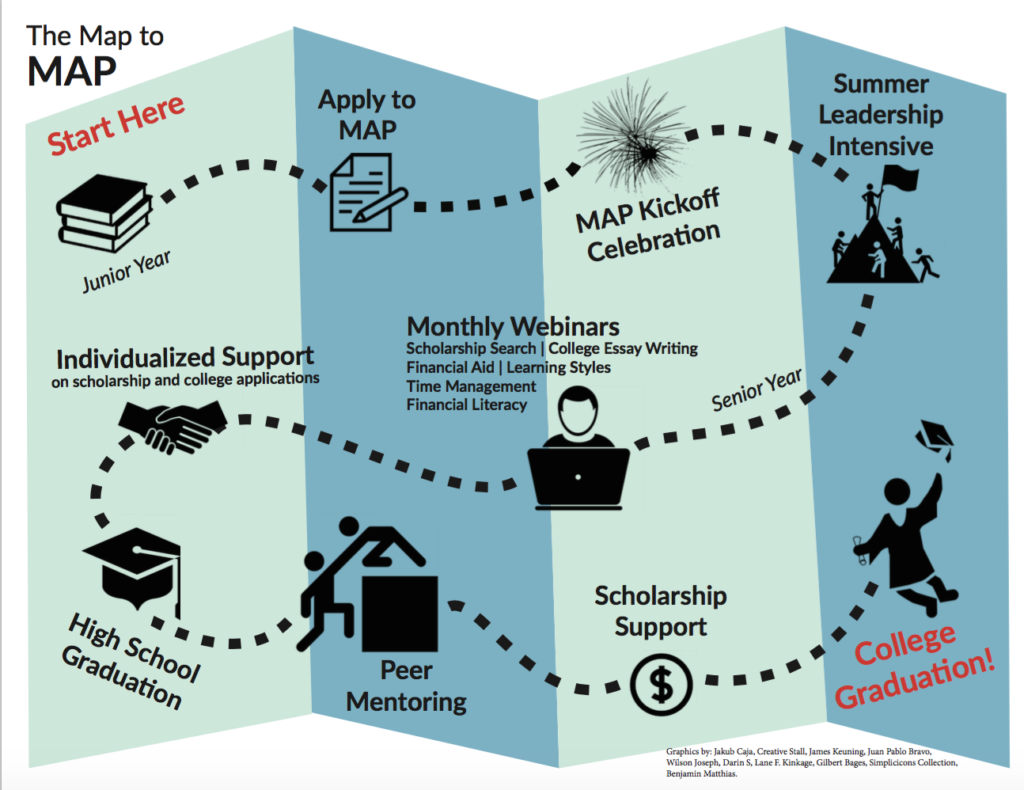Caroline Moore is a community development associate at the Island Institute.
A GPS will chart out a route for you, and direct you which way to go as you travel, but with a map, you can chart the route you want for yourself. A map is a powerful tool that puts you in the driver’s seat. At the Island Institute, we have created a “MAP” for high school students navigating the transition to post-secondary education.
“MAP” stands for Mentoring, Access, and Persistence, and the program will officially launch this spring with the acceptance of our first cohort of high school juniors from Maine’s 15 year-round, unbridged islands. Based on local and national best practices, MAP pairs post-secondary scholarship giving with mentorship and training for students. Our “map to MAP” highlights some of the opportunities available to our students, including an initial kick-off and training, summer leadership intensive, monthly webinars, individualized support, a college peer mentor, and scholarship support. We will also be launching an online “parent toolbox” of resources that parents and students may find helpful in the application and transition process, as well as hosting virtual “office hours” for parents and students via Zoom (a program similar to Skype).
Why the change from a more traditional scholarship program to one that begins during a student’s junior year and focuses on wrap-around support services? Over the past few years, our Education and Community Development teams collaborated to examine our existing scholarship program in the context of national research on college access and persistence, and we found a discrepancy between island high school and post-secondary graduation rates. High school graduation rates for Maine’s island students are high, as 93% of 9th graders complete high school, compared to 87% statewide. In contrast, 41% of island students who enroll in a post-secondary program graduate. As we looked toward the future, we wanted to ensure that we were supporting students not only in post-secondary access, but also in their persistence through graduation – we wanted to see that 41% grow.
Again, we looked to research and best practices from both local and national organizations. Research indicates that while providing scholarship awards promotes student access to post-secondary education, the availability of support services plays a more significant role in helping students overcome barriers to success and persist through graduation. To this end, we are committed to providing these essential support services to students as they transition to post-secondary education, in addition to providing continued financial support. In restructuring our scholarship program to offer additional support to students, our goal is to increase this post-secondary graduation rate to 67-75% of all island students.
Applications for MAP opened on December 1st, and will be accepted until February 28, 2017. See our Scholarships and Transition Support page for eligibility requirements and a link to the online application. An initial kick-off celebration luncheon and training will welcome the first cohort of MAP students to the program on Saturday, March 25th. While the college application and transition process is by no means smooth sailing for all students, we’re excited to work with our MAP scholars to empower them with the tools and resources needed to make the transition as seamless as possible.


